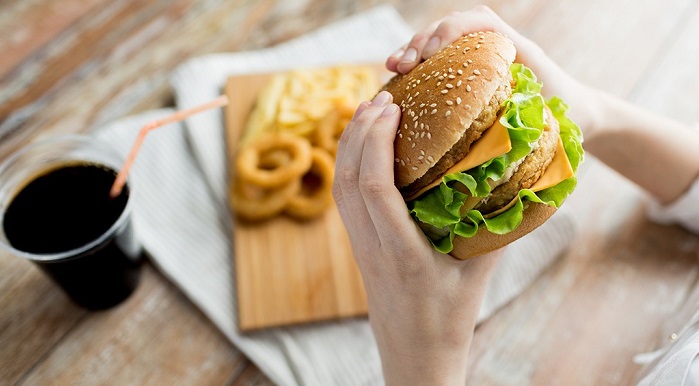Research shows habits can become so ingrained that we often don`t realize we`re doing them -- and this can be a big problem when it comes to mindless snacking.
In fact, once a task becomes second nature, your brain essentially shuts down, according to Brian Wansink, author of `Mindless Eating: Why We Eat More Than We Think.`
"Habits become so automatic ... our environment ends up facilitating a good habit, but it also ends up facilitating a bad habit."
The key then is to create good food habits and stick to them. But this doesn`t mean relying on willpower alone -- all you need to do is change your environment.
"Simply having a fruit bowl sitting out on your counter within three feet of where you typically walk, will lead you to eat a whole lot more fruit, actually about 70% more fruit, than you otherwise would," says Wansink.
Smarten up your kitchen
A similar approach, the smarter lunchroom movement, was rolled out in over 29,000 schools in the United States.
By changing the way food was presented, students were a lot keener on eating their five-a-day.
"Having the bowl of fruit next to the cash register causes 104% more fruit to be taken [and] we find that simply putting a label or name on vegetables -- calling it crunchy carrots instead of carrots -- causes about 30% more kids to take the carrots," says Wansink.
You can also make a big difference in your own kitchen. Findings show that messy kitchens can lead to people eating about 40% more snack food than when they`re in a clean kitchen.
The same principle may work for portion sizes, with Wansink`s research showing that simply using a smaller plate could cut down on food served by 22%.
It`s not about willpower
Breaking bad habits is all about changing your environment, not by using sheer willpower.
"Willpower does not work. That`s why diets don`t work. They work for a certain amount of time, and then you fall back into your old habits. So what we advocate is changing your behavior, changing your lifestyle, changing your environment," says John Brand, a researcher at Cornell University`s Food and Brand Lab.
Whether you keep a tidy kitchen or always have fruit an arm`s length away, the key is to set up your environment so that you can mindlessly eat in a healthy way.
"Changing your habits is very difficult. Changing your environment is very simple," says Brand.
More about:
















































